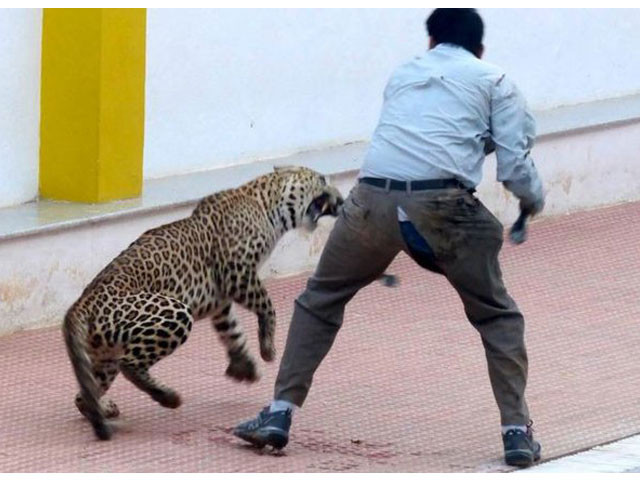Breeding of big cats continues in urban settlements
Loopholes in wildlife legislation have enabled private farms to be set up in residential areas

The trend of breeding wildlife animals, especially big cats, is increasing among common people in the city while wildlife breeding centers built in urban settlements are also becoming a major source of threat to the public.
An African lion was shot dead in the Harbanspura area of Lahore. The African lion had escaped from an illegal breeding farm built in the urban area and was shot dead by the security guard of the breeding farm. Earlier, a female leopard was shot dead at the Bedian Road, after she had entered a private farmhouse.
During the investigation, it came to light that the female leopard had escaped a few days before being killed from a private wildlife breeding farm set up in the Kahna area. Fortunately, there were no reports of any human harm from these dangerous animals, but the news of their escape from the breeding farms had definitely created panic among the locals.
There are currently 26 registered wildlife breeding farms in Lahore, while the number of illegal breeding farms can be doubled. Most of the wildlife breeding farms are where lions and tigers are kept. According to Punjab Wildlife officials, some other big cats, including lions and tigers, which are not found in the wild of Punjab, are not included in the Wildlife Act, so legal action cannot be taken against them. Apart from this, the department can investigate where the person bought the line or tiger from.
According to the Private Wildlife Breeding Farm Rules 2016 made under the Punjab Wildlife Act 1974, wild birds and wildlife breeding farms can be built. For the bird breeding farm, there must be at least four kanals of area while for the wildlife breeding farm it is necessary to have at least 10 kanals.
Proof of ownership of the place or at least a 10-year lease agreement will have to be given for the breeding farm. However, the Wildlife Breeding Farm Rules 2016 do not specify in which area the breeding farm will be built.
Animal rights activist, Ayeza Haider was of the opinion that wildlife breeding farms should not be allowed near urban settlements. "No matter how strong the cages are, the nearby residents live in fear of the roaring sounds of these animals, who can flee at any time.
Citizens buy animals from these breeding farms and try to domesticate them in homes. Putting a chain around the neck of tigers and keeping them in cages is not love but cruelty," discouraged Haider, who further claimed that Punjab Wildlife needs to review and implement the existing laws in this regard.
The National Council for Conservation of Wildlife (NCCW) has laid down rules and regulations for private wildlife breeding farms, under which it is necessary to specify the purpose, facilities, master plan, budget, animal care and education program to create a private zoo/ wildlife breeding farm.
The NCCW gives directions to the concerned provincial wildlife department, which constitutes a committee to verify the documents submitted regarding the breeding farm/zoo and review the facilities.
Wildlife biologist and WWF representative, Dr Uzma Khan said, "In light of the NCCW guidelines for keeping big cats, the minimum limit of enclosure and open area size has been fixed for these animals.
Apart from this, it is also decided that public safety will be taken into account. Keeping big cats near urban settlements can become a public safety issue, so it is not allowed. People who have kept big cats are violating the law," she claimed.



















COMMENTS
Comments are moderated and generally will be posted if they are on-topic and not abusive.
For more information, please see our Comments FAQ